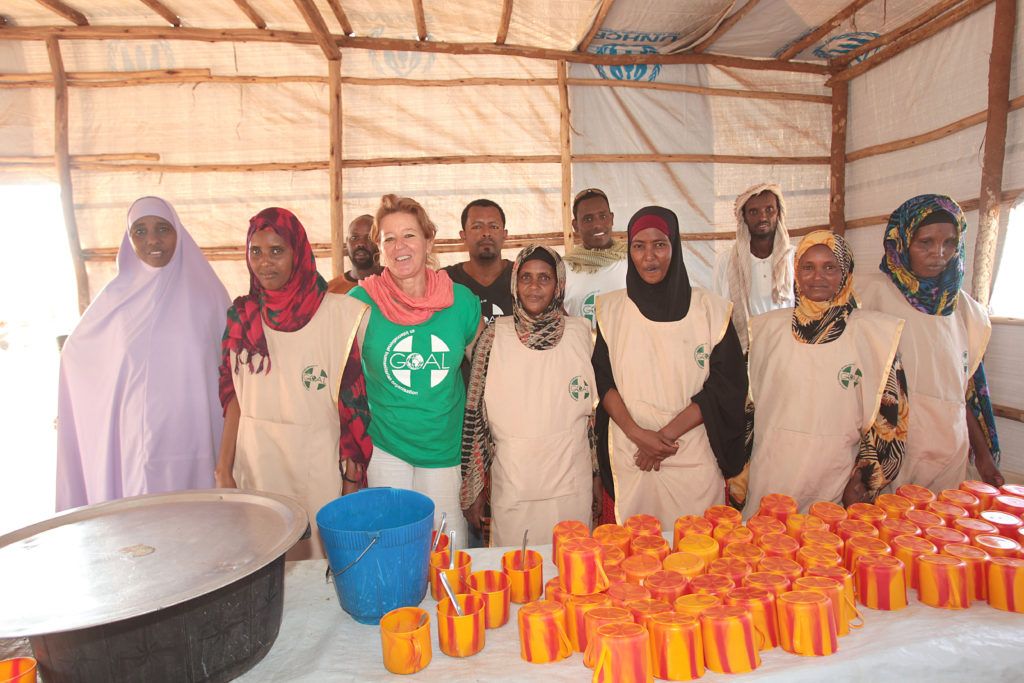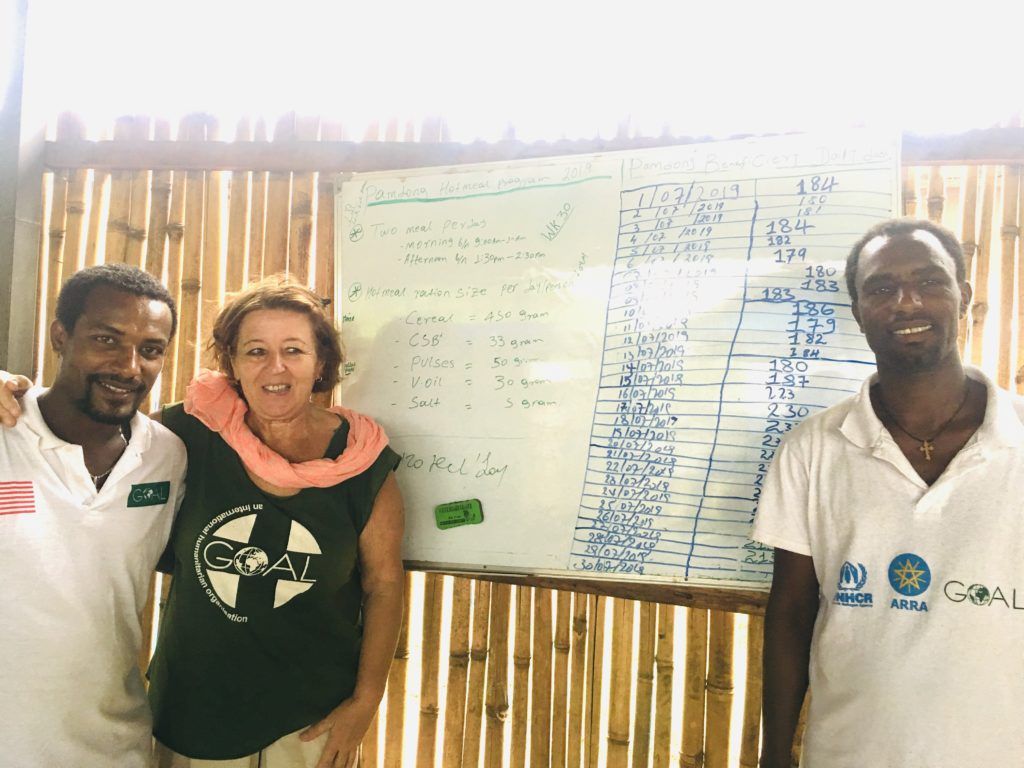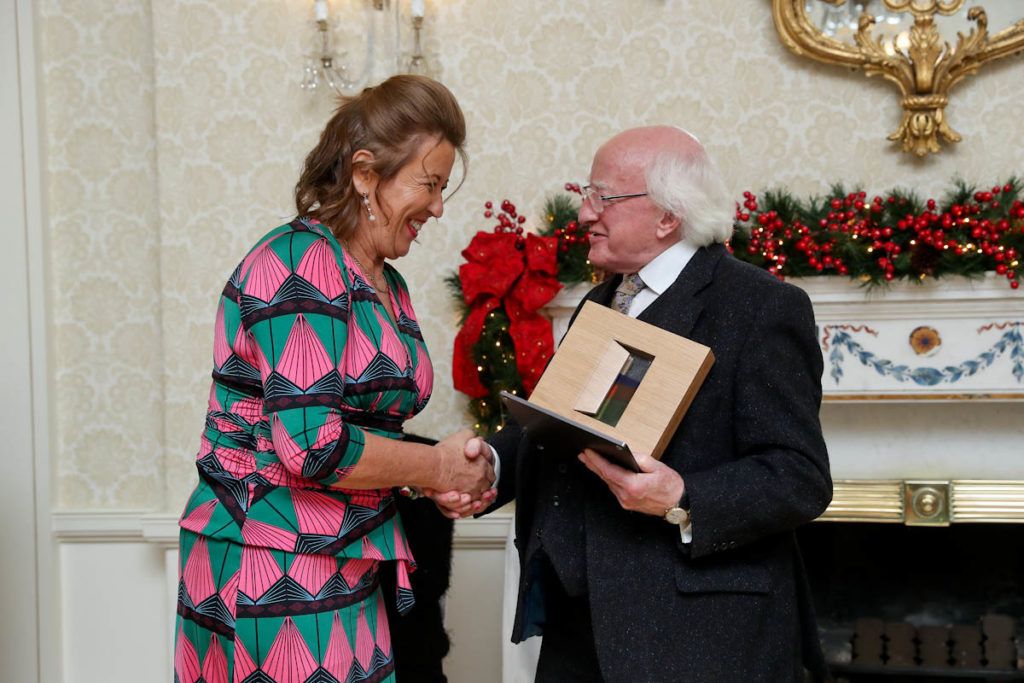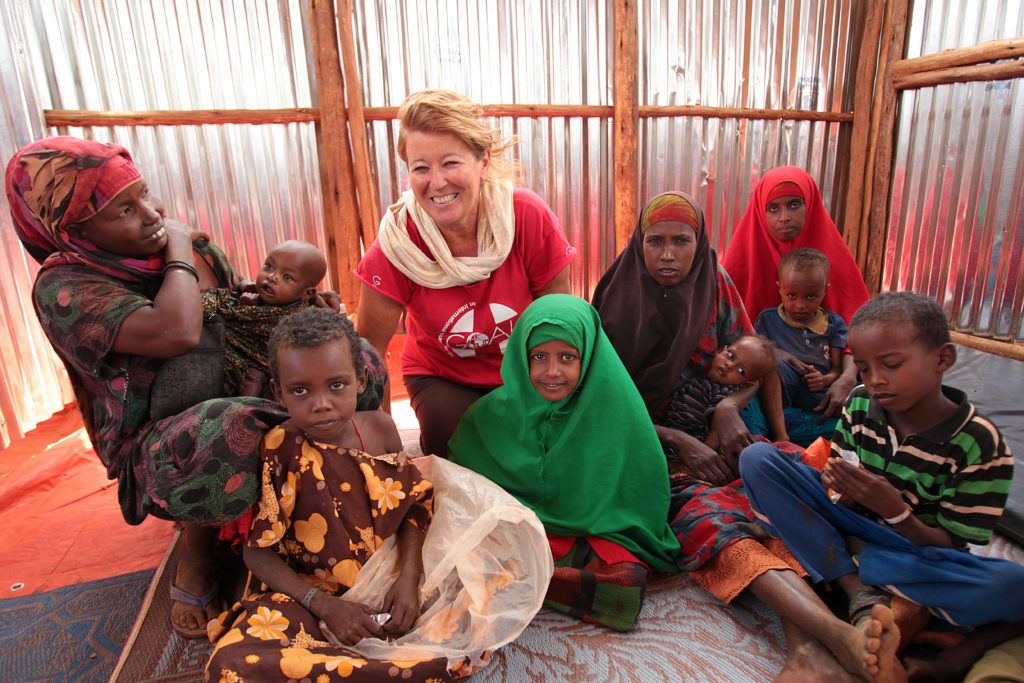 Blogs
Blogs
May 3, 2020 • 6 min read
Mary T Murphy has managed GOAL’s Refugee Programme in Ethiopia for 6 years. Here she writes of the unique challenges COVID-19 poses to refugee camps and how GOAL is responding.
My name is Mary T Murphy. I am from Cork, and I have been managing the refugee programme for Irish humanitarian aid agency GOAL in Ethiopia for the last 6 years.
Ethiopia is no stranger to humanitarian crisis. In the past it has suffered acute food shortages. The most recent crisis was a desert locust (grasshopper) infestation in February which saw thousands and thousands of hectares of crops wiped out, leaving families already experiencing shortages with no food source. The damage these small insects can cause is extreme. Up to 150 million locusts per square kilometer make up a swarm, and with wind they can travel up to 150km in one day.
Now COVID-19 is the latest humanitarian challenge facing Ethiopia. The first case was confirmed on the 13th of March and in April Ethiopia declared a state of emergency to control and prevent the spread of COVID-19. As of April 30th, the number of confirmed COVID-19 cases has reached 131, with three deaths.
The threat of COVID-19 to Ethiopia’s refugee camps

Mary (right) at work with GOAL Ambassador Dr. Ciara Kelly (left) during a visit to GOAL programmes in Ethiopia in 2019.
While GOAL is continuing to deliver its lifesaving programmes in Ethiopia, it is scaling up its COVID-19 response. Of huge concern is if the virus gets a hold in the four refugee camps in which we work. These are Tierkadi and Kule in Gambella Region in Western Ethiopia, where we support South Sudanese refugees, and Berhale and Asayita in Afar Region in the North East, where we support Eritrean refugees. Across the four camps, over 32,000 direct beneficiaries are enrolled in GOAL’s programmes.
These four refugee camps are in very remote areas with limited health care facilities. There are no hospitals in the camps, but we have health posts and health centres where preventative and basic curative services are provided. Refugees are permitted to access the host communities’ hospitals, but these facilities are already overloaded supporting Ethiopia’s national population, and the hospitals in these areas have no ICUs or ventilators. Therefore, access to health care for refugees is a major vulnerability.
The main concern is that the risk of COVID-19 transmission is high due to the large number of refugees living together. While GOAL is ensuring that our current humanitarian programmes supporting nutrition, shelter and sanitation continue, we are also doing COVID-19 awareness raising, providing extra handwashing facilities and distributing essential supplies such as soap.
In addition, the refugees are being encouraged to social distance, but the reality is that the household shelters are crowded. Many families sleep in the one space, making social and physical distancing practically impossible.
In refugee camps, activities are often very repetitive with the same daily routine and challenges. There is no electricity supply and no household TVs. Most refugees go to bed soon after it gets dark and get up with the dawn. Some have solar lamps and solar radios, but generally the refugees are reliant on information from organisations like GOAL and others working in the camps.
GOAL’s response
There are some myths around COVID-19 in the camps that we are trying to dispel. We are distributing accurate and consistent information, translated into the local language, from the World Health Organisation and the Government of Ethiopia.

GOAL refugee programme staff demonstrate how to wash hands properly and exercise social distancing to Eritrean refugees in Aysaita refugee camp.
Part of GOAL’s approach to prevent the spread of the virus is to encourage community involvement in COVID-19 preventative activities, getting communities engaged in their own welfare with emphasis on hygiene promotion, hand washing with soap, respiratory hygiene and physical distancing. This is known as the Community-Led Action approach which we used to huge success during the Ebola outbreak in Sierra Leone in 2014.
One significant impact of COVID-19 is we cannot allow large groups of refugees congregate during nutrition screening programmes, and distribution of food and supplies. So, we have increased the number of smaller distributions, and are staggering them over longer periods, assigning different days per area of the camp.
GOAL runs an innovative programme to screen for child malnutrition in the camps. To do this we use a Middle Upper Arm Circumference (MUAC) tape to measure the width of a child’s arm. If the measurements are low, it is a signal the child is suffering from malnutrition. The tape is also colour-coded for easy interpretation. Mothers and families have been trained on how to screen their children and now with COVID-19 we are reinforcing family MUAC measurement. GOAL’s community outreach agents are monitoring this with home to home visits in the camps, respecting physical distancing. Assessments requiring the congregation of large groups of people have been suspended.
Challenges posed by COVID-19
I have worked in various emergencies and crisis situations, including GOAL’s response in the floods in Pakistan in 2010 and the Ebola response in Sierra Leone in 2014. The COVID-19 virus spreads easily and now we have a pandemic. In the emergencies I previously worked in, response teams came from other countries to support. For example, during the Ebola response in Sierra Leone infectious control experts from Ireland, England, Denmark and Sweden came to support GOAL’s response and we got on top of the situation very quickly. However, COVID-19 is impacting every country and with travel restrictions, it may not be possible to have help parachuted in. If an outbreak occurs in our refugee camps, it will be very serious, therefore our main emphasis is on prevention.
With restriction of movement here in Ethiopia, GOAL staff are staying in their current areas of operation and not travelling within the country to minimize the spread of COVID-19. As we have a different calendar of events here, Easter was celebrated a week later than in Ireland. Normally it is a very big celebration and most people go home to their families, but this year it was very different. Staff stayed in their area of operation and were not able to visit their family and friends and celebrate as they normally would.
It is my pleasure to be working with our super GOAL team in Ethiopia. I am in touch with home and Ireland regularly, and look forward to my next trip to Cork. My friends are always posting and sending me the latest funny clips.
We have a wonderful Irish embassy here which keeps us updated on events at home and we received an uplifting message from the President of Ireland, Michael D. Higgins, for Easter. The Embassy of Ireland sent us a poem from John O’ Donohue’s Book of Blessings, reminding us that the storm will pass and that there are brighter days to come.
One of our last Irish get togethers here in Ethiopia was in early March. We had a great singsong and we are all looking forward to meeting up soon when this is all over. We know this crisis will pass, so let us stay positive and look after each other.




